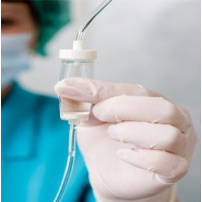Healthcare-Assisted Infections on the Decline
February 15, 2016 A recently released report by the U.S. Centers for Disease Control (CDC) shows that although patients today are less likely to contract a hospital-assisted infection (HAI) than in previous years, there is still room for improvement. Data provided to the CDC demonstrates that approximately one in 25 hospitalized patients in the United States will contract a preventable infection every day. For the elderly and other patients with an already-compromised immune system, certain HAIs can prove deadly.
A recently released report by the U.S. Centers for Disease Control (CDC) shows that although patients today are less likely to contract a hospital-assisted infection (HAI) than in previous years, there is still room for improvement. Data provided to the CDC demonstrates that approximately one in 25 hospitalized patients in the United States will contract a preventable infection every day. For the elderly and other patients with an already-compromised immune system, certain HAIs can prove deadly.
The CDC’s National and State Healthcare-Assisted Infection Progress Report bouts a 10% overall decline in Clostridium difficile (C. difficile) infections between 2012 and 2013. C. difficile occurs when healthy bacteria in the intestinal tract is destroyed by antibiotics and presents in patients as potentially deadly diarrhea. Failure by hospital staff to maintain adequate cleanliness procedures can quickly lead to spreading of the infection throughout the facility. Similarly, inadequate hand washing by medical personnel increases the likelihood that a patient will contract the dangerous bloodstream infection Staphylococcus aureus (MRSA). According to the CDC, over the same time period hospitals nationwide reported an eight percent decrease in MRSA infections.
Although the CDC also demonstrates declines in surgical site and central line-associated bloodstream infections, other HAIs are on the rise. Catheter-associated urinary tract infections (CAUTIs) increased by six percent nationally between 2012 and 2013. A CAUTI can occur when a patient is improperly catheterized, when a catheter is not sterilized or when a patient is catheterized for too long. Germ buildup then travels the length of the catheter, infecting a patient’s bladder and kidneys. According to the CDC, 12% of the 2,781 hospitals in the United States with sufficient data to calculate a standardized infection ratio (SIR) had an SIR sufficiently worse than the national SIR of 1.06 for CAUTIs.
Philadelphia Medical Malpractice Lawyers at Galfand Berger Represent Victims of Hospital-Assisted Infections
Within Pennsylvania, CDC data shows that in 2012 and 2013 CAUTIs were two percent higher and MRSA infections were eight percent higher than the national baseline. Even with declines in other areas, Pennsylvania hospital patients remain vulnerable to HAIs, which are entirely preventable. If you or a loved one has been injured by an HAI, contact our Philadelphia medical malpractice lawyers at Galfand Berger. With offices in Philadelphia, Reading and Bethlehem, we proudly serve clients throughout Pennsylvania and New Jersey. Call 800-222-8792 or complete an online contact form to schedule your free consultation today.
 Google Screened
Google Screened
